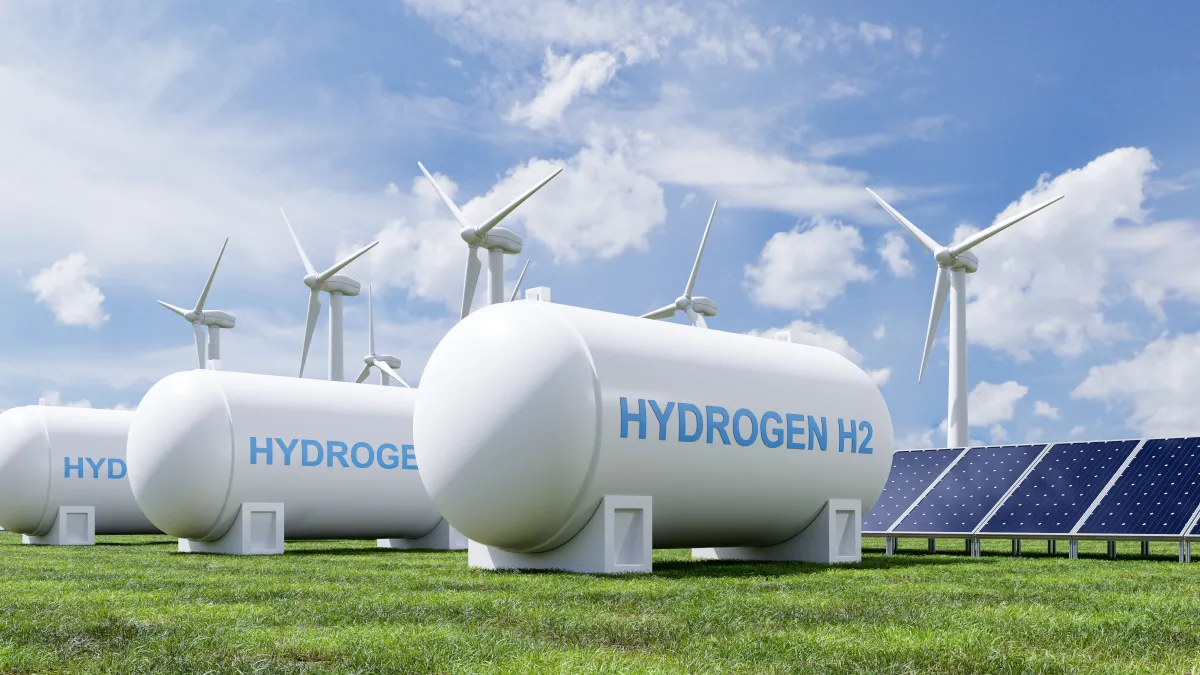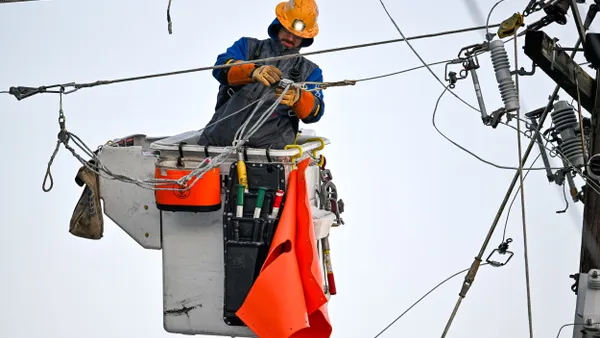Dive Brief:
-
The U.S. Department of the Treasury and the Internal Revenue Service on Friday released proposed regulations defining criteria hydrogen producers will have to meet to qualify for the 45V clean hydrogen production tax credits created by the Inflation Reduction Act.
- According to the proposed rules, hydrogen producers would have to use renewable or zero emission electricity from generators who began operation no more than three years prior to the construction of the hydrogen facility. The electricity would also have to be sourced from within the same geographic region as the hydrogen production facility, and would be subject to hourly matching rules beginning in 2028.
-
Hydrogen industry leaders panned the proposal, saying the framework is too rigid and will impede the growth — and decarbonization — of U.S. industry.
Dive Insight:
The past year has seen discussion of the IRA's 45V hydrogen production tax credit criteria turn into a “political brawl,” according to Keith Martin, co-head of U.S. projects at global law firm Norton Rose Fulbright. So it is not surprising that the Treasury's draft guidance, released the Friday before Christmas after weeks of delays, prompted frustration and even threats of lawsuits the morning of its release.
The IRA assigns a graduated value to the 45V credit, so that the value of the credit ranges from $.60 per kilogram of hydrogen to $3 depending on the intensity of the hydrogen's lifecycle carbon emissions, and whether the hydrogen producer meets prevailing wage and apprenticeship criteria. But in it's draft guidance, the Treasury Department proposes additional eligibility criteria regarding the age and location of renewable electricity used to drive hydrogen production. Hydrogen producers must also meet hourly matching rules by 2028 to qualify for the credit — a rule Martin said will make it difficult to finance hydrogen projects going forward.
The proposed rules include similar criteria for other potential hydrogen feedstocks, in addition to clean electricity. Hydrogen producers, for example, must show that any renewable natural gas they used was not previously used for another purpose.
The Biden Administration touted the proposed rules as a way to reduce carbon emissions.
“The Inflation Reduction Act’s hydrogen tax credit will help build a clean hydrogen industry that will be critical in reducing emissions from harder-to-decarbonize sectors like heavy industry and heavy transportation,” John Podesta, senior advisor to the president for clean energy innovation and implementation, said in a statement.
But the hydrogen industry is broadly critical of the draft guidance.
Although some hydrogen producers, including electrolyzer manufacturer Electric Hydrogen, welcomed the guidance, the rules unpopular within the hydrogen industry, and some leading hydrogen producers are already talking about suing to stop the implementation of Treasury's proposal, according to Mona Dajani, a partner at Baker Botts, where she co-chairs the firm's energy, infrastructure and hydrogen practice.
The proposed rules also garnered criticism from Sen. Joe Manchin, D-W. Va.
“Adding onerous new restrictions for the hydrogen tax credit is particularly hypocritical when this administration has bent, broken, and ignored the law again and again to make it easier to access electric vehicle tax credits,” Manchin said in a statement. “Today’s proposed rule doesn’t just violate the law — it makes absolutely no sense, and I will continue to fight this administration’s manipulation of the IRA.”
A number of industry associations, including the American Council on Renewable Energy and the Fuel Cell and Hydrogen Energy Association, argued that the rules would impair the growth of the hydrogen industry and push jobs overseas. Plug Power, which produces green hydrogen and specialized hydrogen-fueled vehicles such as forklifts designed for use inside warehouses, argued that the strict standards would not only stall industry development, but hinder progress toward national emissions goals as well.
“From our preliminary review, the draft framework will fall woefully short in achieving the Administration’s decarbonization objectives, such as the Clean Air Act Section 111 performance standards and DOE Clean Hydrogen Hubs program,” Plug Power president CEO Andy Marsh said in a statement. “A robust domestic clean hydrogen supply is essential to decarbonizing heavy industry, and the draft regulations are counter to Congress’ intent and the statutory mandate of Section 45V.”













